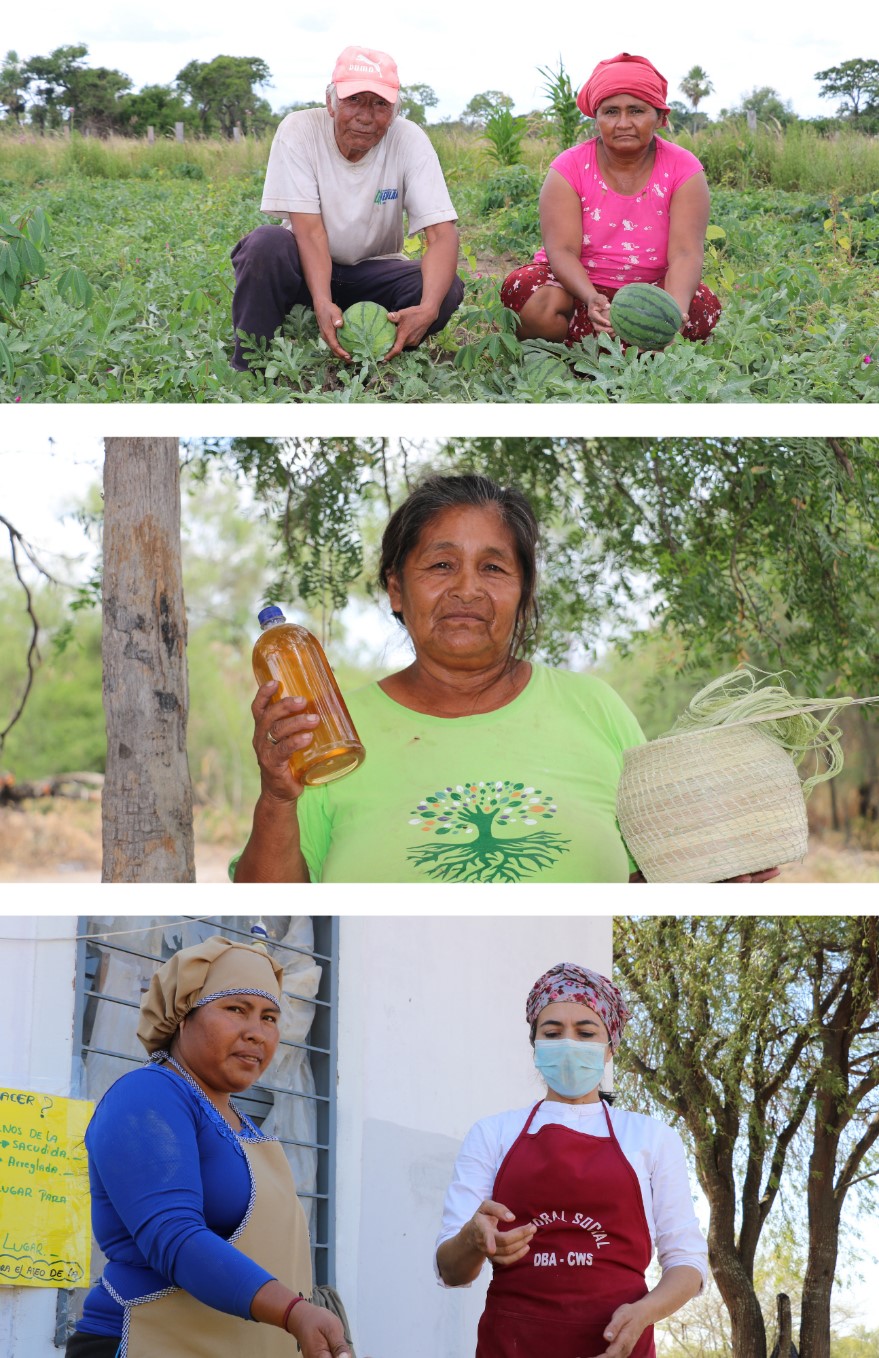Stories of Change

Top: Alodia and Cristobal in their garden where they have grown their own watermelons. Middle: Estelvina, producer of honey and handcrafts. Bottom: Women in training on planting seeds and food production
Paraguayan Indigenous Communities are Seeding Knowledge
Studying is opening a door of possibilities for people in the Lower Chaco region (Paraguay). The indigenous women of this region tell us about their achievements.
One of the greatest wishes of Teresa Benítez, a resident of El Espinillo, Paraguay, is “to study, to know the letters A, B, and the other letters as well.” She is 76 years old, plants vegetables, produces honey and lives with her husband and two children in El Espinillo.
Jorgelina Flores and a group of women from the Yakye Acá community have expressed the same need: “We want to read and write, and not die doing our signature with fingerprints.” And in the Sawhoyamaxa community, Mariana Ayala comments that “it is time to wake up and assert our rights for the education of our children.”
These women are all part of the project called “Comprehensive Rural Development in Indigenous Communities of the Lower Chaco region, in Paraguay.” The program is implemented by CWS through our local partner, Pastoral Social Diocesana de Benjamín Aceval, with the support of Growing Hope Globally.
The program includes planting trees, digging wells in low water areas, indigenous health and other vital aspects for the communities of the region. There is also training in human, civil and political rights, agriculture and beekeeping production.
Before participating in the training on planting seeds and food production, Alodia González did not know how to create income for her family. With knowledge on agriculture and beekeeping, she led the production process of the community garden and began to make honey.
The honey production process began in September 2021 and ended with the last harvest in February 2022.
“With a good production of honey, we are generating significant economic income to support our families. We harvest the honey from the bee boxes and sell it here in the community, or we manage to sell it at fairs in Asunción [Paraguay’s capital],” Alodia said. She added that “with the garden, we are able to eat lettuce, parsley and other vegetables produced by us.”
In 2021 the hot season damaged the orchards and delayed the growth of the planted vegetables. Despite this, the planting of fruit trees (390) such as lemon, orange, tangerine, grapefruit and mango was able to start again shortly after.
Alodia’s community also received wire mesh to fence the community garden. They also got tools, seeds, and technical assistance for the preparation of food from cultivated products. In total, 11 orchards were activated with the participation of 75 families.
These activities take place in six indigenous communities: San Fernando, Laguna Pato, Monte Alto, Espinillo, Yakye Axa and Sawhoyamaxa.
“We save our seeds, and now all the seeds that we planted and collected last year are growing,” Herminia González says. She is an agricultural producer from the Lolaico Guasu village, in Laguna Pato community.
One of the biggest challenges continues to be the lack of water for human consumption and production during long periods of drought. Thus, to increase the number of water sources in 15 villages, 24 shallow wells were dug. Ten of these shallow wells will supply the most affected communities in drought and scarcity of rainwater. A total of 301 families benefited.
“For education to improve in all communities, we must all unite,” Leonardo Martínez said. He is one of the leaders of the village 26 de Junio, Espinillo.
As part of the project, 520 families also receive support and donations, given the necessities for the pandemic. 12 kg non-perishable food items have been donated in places where access is most difficult because there are no roads.
This year, one of the goals of Pastoral Diocesana de Benjamín Aceval is to continue empowering community members so that they can self-manage their productions and crops.
